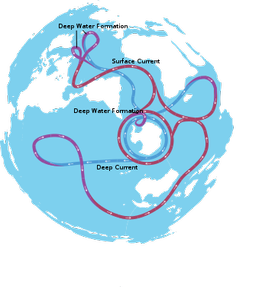 I'm not a scientist. I can't claim to effectively judge any major theory as to the causes of the Little Ice Age. But I know very well which one the documentary makers want me to favor.
I'm not a scientist. I can't claim to effectively judge any major theory as to the causes of the Little Ice Age. But I know very well which one the documentary makers want me to favor.
Talking heads proposed various ideas. It could have been that half a percentage drop in radiation from the sun that was the culprit. It may have been the increased number of volcanoes which erupted during the period.
It might be a natural cycle, which just happens.
Perhaps not coincidentally, the Maunder Minimum dates are perfectly aligned to the worst period of the Little Ice Age.
The point was repeatedly made that the scientific community haven't yet got the definitive answer, but they're working on it.
However, there was one theory which wasn't just a talking head. The thermohaline circulation explanation was repeated three times, each with a computerized graphic to explain it all to laymen viewers. Naturally, it's the one which lodged most firmly in my mind.
Also known as the oceanic conveyor belt, this is a naturally occurring phenomenon whereby sea water warmed in the tropics moves north. As it reaches the Arctic, it cools and the current pushes further into the depths. The stream is then conveyed back down into the tropics, where it warms, rises and goes back to the Arctic.
The Gulf Stream is just a tiny part of this massive cycle. It's what keeps North America and Western Europe from freezing like Siberia.
The theory here is that the Warm Period, right before the Little Ice Age, had melted glaciers so much that fresh water had flooded the stream. Unable to properly cool, the conveyor belt was interrupted. A chain reaction kicked off stopping warm water reaching the north, hence everything got colder.
This was then linked with modern global warming and 'the so-called Greenhouse Effect'. It was stated that the Industrial Revolution, with all its burning of fossil fuels, is what stopped the Little Ice Age.
I'm no scientist, but a documentary which informs me that global warming is good sounds suspiciously misleading. The whole thing played out with a catastrophic dramatization of what would happen if we didn't keep on burning fossil fuels.
The Little Ice Age would be back with a vengeance. Europe would dissolve into anarchy and wars over ownership of its oil. (What oil? Apart from the North Sea, and some in Scandinavia and Russia, I'm struggling here.) Everyone in South America would rush to be in the United States (but wouldn't it be warmer where they came from?).
China would have a civil war, then attack Saudi Arabia after its oil. India and Pakistan would also join in. The USA, China and Pakistan would be forced to use nuclear weapons on each other; and the world would end.
So keep on burning fossil fuels, boys and girls! Global warming (if it's happening) is good and we don't want all of the above, do we now?
By the closing credits, I'd finally lost faith in the scientific and sociological information too. While all present and correct, it was definitely biased towards certain viewpoints, which felt finally divorced from reality as I understand it.



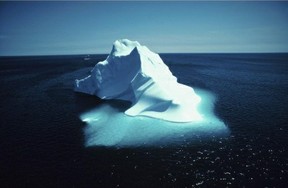 In 1275, Atlantic ice packs began to grow. By the 17th century, you could walk from New Jersey to Queens across the frozen Hudson River.
In 1275, Atlantic ice packs began to grow. By the 17th century, you could walk from New Jersey to Queens across the frozen Hudson River. 
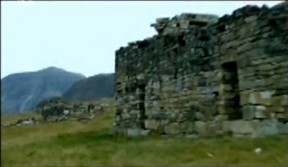 I love history (and, in other news, water is wet), but I'm also interested in science. It's a case of having to be, when two of my closest friends are a physicist and a biologist respectively. I picked this documentary out precisely because of that delicious mixture of topics.
I love history (and, in other news, water is wet), but I'm also interested in science. It's a case of having to be, when two of my closest friends are a physicist and a biologist respectively. I picked this documentary out precisely because of that delicious mixture of topics.


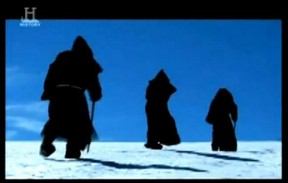 It is to be expected that any documentary about the Medieval and Post-Medieval worlds is going to linger upon Christianity. I would be the first to criticize its makers if it didn't.
It is to be expected that any documentary about the Medieval and Post-Medieval worlds is going to linger upon Christianity. I would be the first to criticize its makers if it didn't.


 I'm not a scientist. I can't claim to effectively judge any major theory as to the causes of the Little Ice Age. But I know very well which one the documentary makers want me to favor.
I'm not a scientist. I can't claim to effectively judge any major theory as to the causes of the Little Ice Age. But I know very well which one the documentary makers want me to favor.




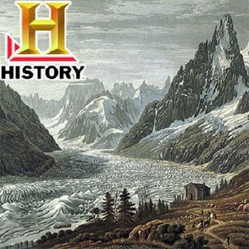

 St Tydecho's Churches in West Waleson 09/03/2014
St Tydecho's Churches in West Waleson 09/03/2014
 Goodies for an Outlander Premiere Partyon 03/06/2015
Goodies for an Outlander Premiere Partyon 03/06/2015
 Holocaust Memorial Day Interview with Rainer Höss, Grandson of Rudolf Architect of Auschwitzon 01/24/2015
Holocaust Memorial Day Interview with Rainer Höss, Grandson of Rudolf Architect of Auschwitzon 01/24/2015
 Romantic Valentine Gifts for an Outlander Fanon 01/16/2015
Romantic Valentine Gifts for an Outlander Fanon 01/16/2015

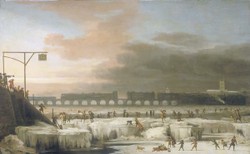
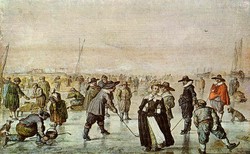
Comments
It was entertaining to watch. A bit weird in how it jolted from one subject to the next, and misleading in parts, but still entertaining.
I haven't seen it but it sounds creepy!